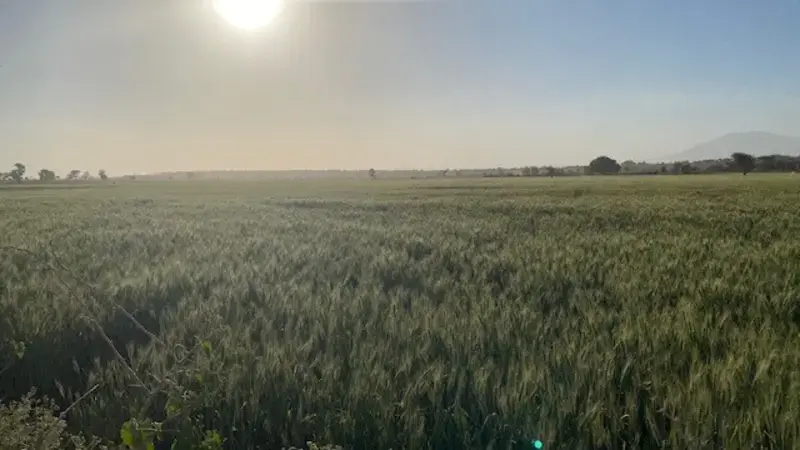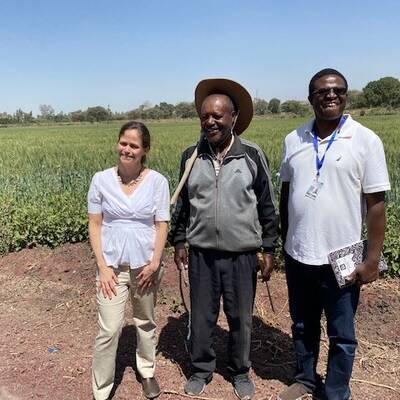Ethiopia paves the way to wheat self-sufficiency

Ethiopia’s cool, showery highlands are an ideal environment for wheat production, unlike the hot, dry lowlands ill-disposed for wheat cropping. Until now, Ethiopia relied heavily on the highlands to produce this crop. But with the recurrent rust disease epidemics, the need to expand wheat production to other regions became a priority to keep up with a growing population’s demand for wheat products such as bread.
With support from the African Development Bank (AfDB), ICARDA and partners are working together to help the Ethiopian government towards achieving wheat self-sufficiency by 2025. The Technologies for African Agricultural Transformation (TAAT) project – launched in 2018 - offers improved, climate-smart, high-grain yielding, better grain quality, water use efficient, and heat-tolerant wheat varieties able to grow on the arid Ethiopian lowlands.

In February 2020, a high-level delegation from AfDB visited Ethiopia to monitor the TAAT project’s progress and achievements, by interacting with national partners and stakeholders, including farmers, and particularly women and youth. Given reports of the project’s success, the Governments of Ethiopia, as well as Sudan, reaffirmed their commitment towards wheat self-sufficiency and the project entered its next phase.
Two years on, a new AfDB high-level delegation visited irrigated wheat production activities in the Eastern Shoa Zone of Ethiopia. Building on the TAAT project initiatives and strong commitment from the Government of Ethiopia, a vast expansion of wheat production from 20,000 ha in 2020 to over 500,000 ha has taken place over two years across the country.
Even though Ethiopia is already the leading sub-Saharan African country in wheat production, there is still room for growth. The TAAT project sets the country firmly on the path to achieving wheat production self-sufficiency by 2025, reducing dependence on expensive imports, boosting the economy, and creating thousands of jobs and business opportunities.
The TAAT project embodies CGIAR’s, AfDB’s, and Ethiopia’s vision of how joint efforts to provide innovative science, climate-smart technology, and local expertise to kick start economies and build resilient rural communities that can adapt to the challenges of an intensifying climate crisis.
